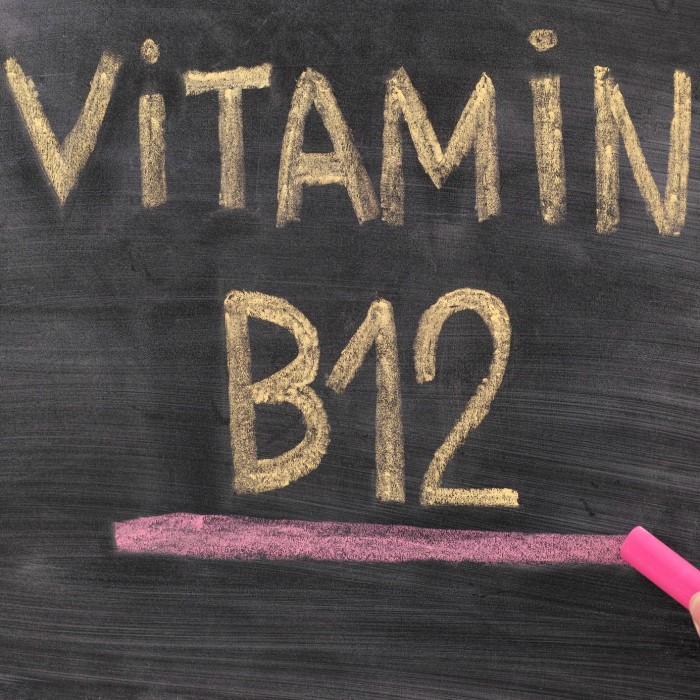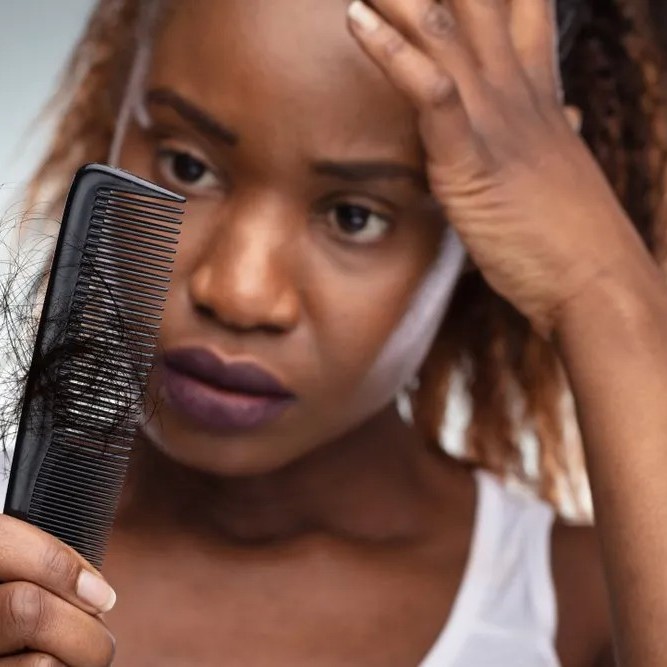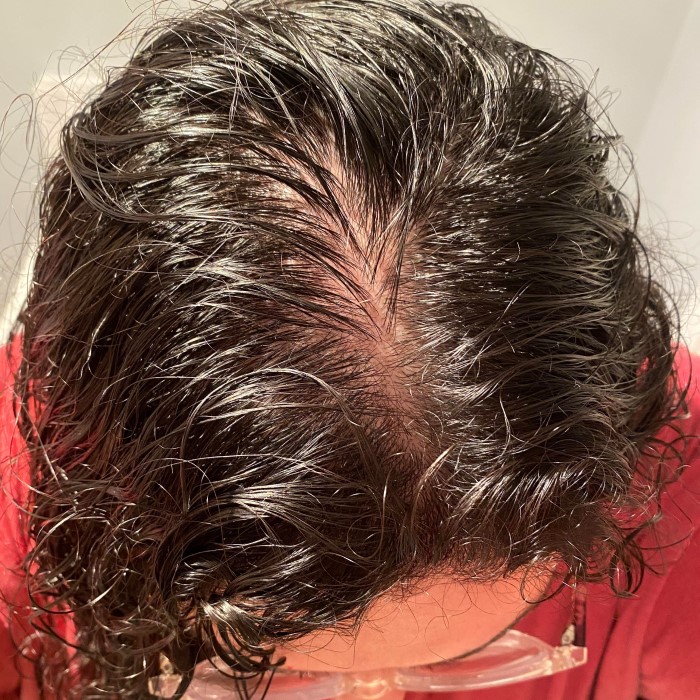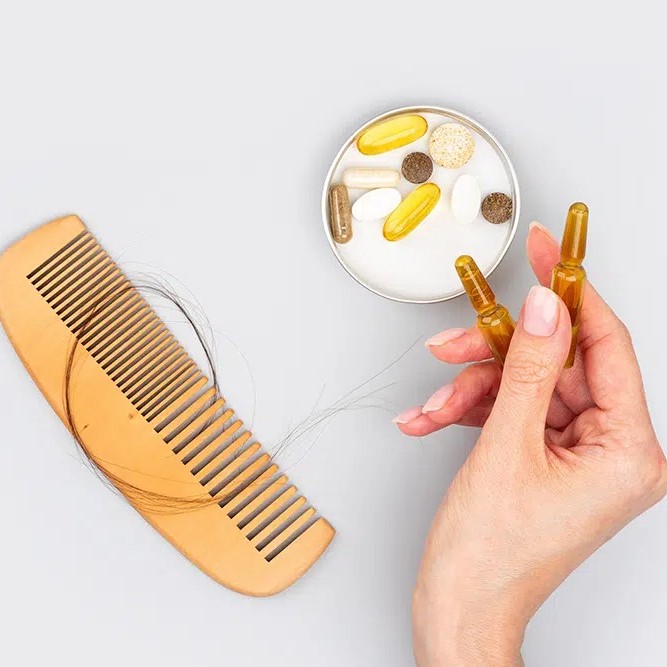
Does B12 Deficiency Cause Hair Loss? Discover the Link Today
Understanding B12 and Hair Loss
In the journey of maintaining optimal health, vitamins and minerals play a crucial role. Among the many essential nutrients that our bodies need, Vitamin B12 stands out, not only for its importance in various biological functions but also for its significant impact on hair health. Many individuals have pondered the question, “Does B12 deficiency cause hair loss?” The resounding answer is yes; however, the relationship is not one-dimensional. It’s vital to delve deeper into this topic to fully understand the implications of B12 on hair and how a deficiency may lead to hair loss.
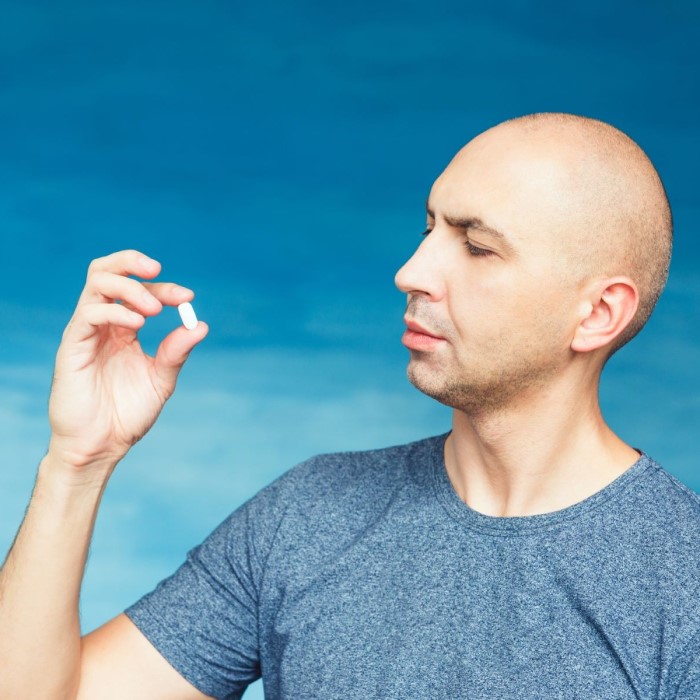
Vitamin B12, also known as cobalamin, is water-soluble and participates in critical bodily processes, such as DNA synthesis, red blood cell formation, and neurological function. It is primarily found in animal products, making vegetarians and vegans particularly vulnerable to its deficiency. A lack of B12 can lead to a myriad of health issues, and increasingly, this deficiency is linked to hair loss, which can be distressing to many individuals.
Hair loss is a condition that affects millions of people worldwide, and the psychological impact it carries can be profound. When discussing hair loss, it is essential to consider various factors, including genetic predisposition, hormonal imbalances, stress levels, and, importantly, nutritional deficiencies. Among these, B12 deficiency has emerged as a significant contributor to hair loss, leading individuals to search for effective solutions.
In this article, we will explore the relationship between B12 deficiency and hair loss comprehensively, covering the underlying mechanisms, signs of deficiency, dietary sources, and preventive measures. By understanding what this vitamin does for our hair and how to maintain appropriate levels, individuals can take proactive steps to ensure hair health.
What Are the Signs of B12 Deficiency?
Does b12 deficiency cause hair loss? Recognizing the signs of B12 deficiency is a fundamental step in addressing potential hair loss. The body requires this vitamin for various functions, and a deficiency can manifest through several symptoms. While some symptoms may seem unrelated to hair health, it’s essential to take a holistic view. Here are some common signs to look out for:
- Fatigue and Weakness: Chronic fatigue or unexplained weakness is among the most common symptoms of B12 deficiency. Individuals often feel lethargic and have less energy throughout the day.
- Dizziness: Low red blood cell counts due to B12 deficiency can lead to feelings of dizziness or lightheadedness.
- Nerve Problems: Neurological symptoms may include tingling sensations in the hands and feet, known as peripheral neuropathy. These sensations can be unsettling and often raise concerns about overall health.
- Mood Changes: Mood swings, irritability, or even depression can arise from low B12 levels. These emotional factors can, in turn, contribute to stress-related hair loss.
- Skin Pale or Jaundiced: A deficiency can cause pale or slightly yellow skin due to issues with red blood cell production.
- Vision Changes: Although less common, vision problems can occur as B12 deficiency damages the optic nerve.
- Hair Changes: Specifically relevant to this discussion, hair thinning, increased shedding, or bald patches can be directly linked to a deficiency in vitamin B12.
Given the range of symptoms associated with B12 deficiency, many people may overlook hair loss in favor of more immediate concerns such as energy levels or mood changes. Therefore, being aware of these signs can empower individuals to seek timely medical advice and intervention.
How Does B12 Affect Hair Growth?
Does b12 deficiency cause hair loss? Hair growth is a complex biological process that depends on several factors, including nutrition. Vitamin B12 plays an essential role in this process. But how exactly does it impact hair follicles and growth?
- Red Blood Cell Production: B12 is vital for the production of red blood cells in the body. These cells are responsible for carrying oxygen to hair follicles. Without sufficient oxygen, hair follicles may become dormant, leading to an interruption in hair growth and ultimately causing shedding.
- Cell Division and Growth: B12 is involved in DNA synthesis, which is crucial for cell division. Hair follicles are among the most rapidly dividing cells in the body; hence, adequate B12 levels are necessary for healthy and efficient division and growth of these cells.
- Healthy Hair Structure: B12 contributes to the maintenance of a healthy hair structure, which helps prevent breakage. A well-structured hair shaft is less prone to damage, leading to fuller and healthier hair over time.
Due to its pivotal role in these processes, it becomes clear why a deficiency in B12 could disrupt normal hair growth. Individuals experiencing unexplained hair shedding should consider their nutritional intake and assess if a lack of B12 could be at play.
Dietary Sources of Vitamin B12
Understanding the dietary sources of Vitamin B12 is vital for ensuring adequate intake, especially for individuals at risk of deficiency. Here are some rich sources of B12:
- Animal Products: Meat, fish, poultry, eggs, and dairy products are the primary sources of B12. For example, beef liver is one of the richest sources of this vitamin.
- Fortified Foods: For those who follow a plant-based diet, fortified foods can provide an excellent source of B12. Common fortified products include plant-based milk, breakfast cereals, and nutritional yeast.
- Supplements: If dietary changes are insufficient or difficult to implement, B12 supplements are available in various forms, including oral tablets, sublingual forms, and injections. It is advisable to consult a healthcare provider to determine the appropriate dosage.
For individuals who cannot consume adequate amounts of B12 through diet, incorporating fortified foods and supplements is essential to prevent deficiency and its resultant health implications, including hair loss.
Will Hair Loss from B12 Deficiency Grow Back?
Does b12 deficiency cause hair loss? A common question individuals facing hair loss often ask is, “Will hair loss from B12 deficiency grow back?” The answer to this question generally leans toward optimism, but it is contingent on several factors. If B12 deficiency is identified as the primary cause of hair loss, restoring adequate levels of this nutrient can indeed promote regrowth. Here are some insights into this topic:
- Time Frame for Regrowth: While restoring B12 levels can lead to regrowth, it is essential to understand that results do not occur overnight. Generally, individuals can expect to see improvements within several months, but this varies from person to person. Continued consistency in B12 intake is critical during this period.
- Severity of Deficiency: The extent of hair loss prior to intervention can influence the time it takes for hair to regrow. Those with mild cases of hair loss often regain their hair more quickly compared to those who have experienced prolonged deficiency.
- Holistic Health: Other factors can influence hair regrowth, including overall health, genetics, and other nutritional deficiencies. Addressing these factors alongside B12 supplementation can yield better results.
- Health Professional Guidance: It is always advisable for individuals experiencing significant hair loss to seek guidance from a healthcare provider. They can recommend appropriate tests to determine B12 levels and suggest a tailored approach to restoring hair health.
In conclusion, while hair loss due to B12 deficiency can potentially be reversed, it requires commitment to dietary changes, supplementation, and perhaps adjustments to overall health practices.
Other Vitamin Deficiencies Linked to Hair Loss
While we’ve focused on Vitamin B12, it is essential to recognize that other vitamin deficiencies can also contribute to hair loss. Here’s a brief overview of other nutrients that play a significant role in hair health:
- Iron: Iron deficiency often leads to anemia, which can result in weakened hair roots. Ensuring multiple sources of iron in your diet, such as lentils, beans, and fortified cereals, is vital.
- Vitamin D: Recent studies have indicated a link between vitamin D deficiency and hair loss, specifically a condition known as alopecia areata. Sun exposure or supplementation can help maintain adequate vitamin D levels.
- Biotin: Although biotin has garnered attention for its role in hair health, it’s essential to obtain it through a balanced diet. This vitamin aids in the health of keratin, a crucial protein in hair structure.
- Zinc: Zinc plays a significant role in hair tissue growth and repair. A deficiency in zinc can lead to hair loss and should be monitored, especially in vegetarians and those with restricted diets.
By maintaining a well-rounded diet rich in various vitamins and minerals, individuals can not only support their hair health but also promote overall well-being.
Can B12 Cause Headaches?
When discussing vitamins, it’s natural to question whether they can lead to adverse effects. Specifically, some may wonder if B12 can cause headaches. The reality is that while severe deficiency in B12 can indeed lead to various neurological symptoms, including headaches, the vitamin itself is generally regarded as safe, even when supplemented in higher doses.
- Headaches from Deficiency: Individuals suffering from a B12 deficiency may experience headaches as a neurological consequence. This may be due to low energy levels or poor oxygenation in the body.
- Excessive Intake: High doses of B12, particularly from supplements, may cause side effects in susceptible individuals. Such side effects can include headaches, flushes, or mild gastrointestinal upset. Nevertheless, these instances are rare.
- Consultation Recommended: For anyone experiencing persistent headaches, whether they are taking B12 supplements or not, consulting with a healthcare provider is recommended to rule out other causes.
It is plausible to connect headaches to a variety of factors, from lifestyle choices and stress to dietary imbalances. Hence, isolating B12 as a root cause may not always be straightforward.
What Happens to Your Weight When You Take B12?
Another pertinent query surrounding Vitamin B12 is its impact on weight management. Some individuals report changes in their weight after supplementing with B12, often attributing these changes to increased energy levels. Here’s a breakdown of this phenomenon:
- Energy and Metabolism: B12 is essential for energy metabolism. Enhanced energy levels may lead to increased physical activity, which can indirectly contribute to weight loss.
- Individual Variability: It’s essential to acknowledge that each person responds differently to B12 supplements. While some may experience weight loss, others may not see any significant changes in weight.
- Not a Weight Loss Solution: Relying solely on B12 supplementation for weight loss may lead to disappointment. A balanced diet and regular exercise remain the cornerstone of effective weight management. B12 can be a supportive element of a broader weight loss strategy but should not be viewed as a standalone solution.
- Holistic Approach: For anyone considering B12 for weight management, focusing on a holistic approach encompassing dietary choices, physical activity, and lifestyle changes will yield the best results.
Conclusion: Addressing B12 Deficiency for Hair Health
To sum up, understanding whether “does B12 deficiency cause hair loss?” is integral for those dealing with hair thinning or shedding. Ensuring adequate levels of B12 can significantly bolster hair health, resulting in stronger and more vibrant hair.
If you suspect a deficiency, it is imperative to evaluate your dietary habits, consider fortified foods, and if necessary, start supplementation. Proactive health management, including regular check-ups, can prevent hair loss and promote overall well-being.
As you navigate your health journey, remember that every aspect plays a role—from nutritional intake to emotional well-being. By addressing deficiencies and making informed choices, you can pave a pathway to healthier hair and a happier life. With the information shared in this article, you are empowered to take actionable steps towards better health, ensuring that you support your body’s needs effectively.
